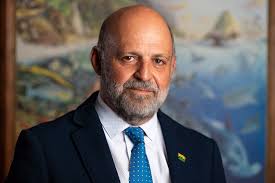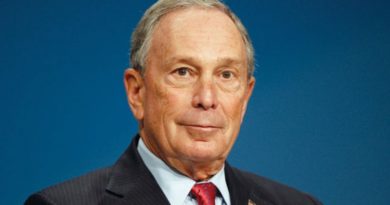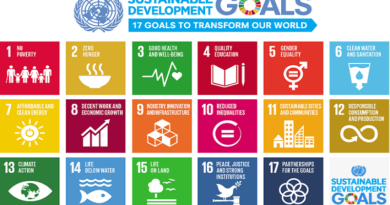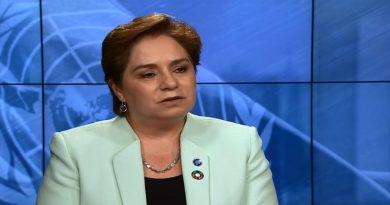GEF Council provides funding boost for pollution and other priorities, kicks off ninth replenishment
The Global Environment Facility’s governing body has approved nearly $700 million in financing to improve chemicals and waste management, bolster water and urban resilience, and protect biodiverse areas in developing countries striving to meet international environmental goals, in partnership with civil society.
Meeting virtually, GEF Council members representing 186 countries agreed to start the process early next year for the ninth replenishment of the Global Environment Facility Trust Fund. This next four-year funding period, stretching from July 2026 to June 2030, aligns with the final push towards achieving key targets across the multilateral environmental agreements the GEF supports.
“Our planet’s vital signs are flashing red – we need to work urgently to avert the collapse of the global ecological system that maintains life on Earth. Meeting the 2030 goals has our full attention, and we are committed to moving quickly through GEF-9 to tackle priority environmental needs in an inclusive manner,” said GEF CEO and Chairperson Carlos Manuel Rodríguez.
“Addressing environmental challenges, which is complex, requires a systematic approach and collective responsibility, for ourselves as well as the future generations,” said Dawda Badjie Banjul, Co-Chair of the 68th Council and Council Member from The Gambia.
In their week-long meetings, Council members allocated $554 million from the GEF Trust Fund, $93.6 million from the Least Developed Countries Fund (LDCF), and $12.6 million from the Special Climate Change Fund (SCCF). They also reviewed progress by the Global Biodiversity Framework Fund (GBFF), including the setting aside of $91 million for the future funding of new initiatives in 17 countries that received project preparation grants.
The Global Environment Facility’s family of funds, including the GEF Trust Fund, GBFF, LDCF, SCCF, Nagoya Protocol Implementation Fund, and Capacity-building Initiative for Transparency, work to meet needs in an integrated, inclusive, and efficient way, leveraging the strength of the GEF Secretariat and its policies to ensure maximum impact.
Together, the funds support countries’ progress towards the targets of the Biodiversity Beyond National Jurisdiction Agreement, Convention on Biological Diversity, Minamata Convention on Mercury, Stockholm Convention on Persistent Organic Pollutants, UN Convention to Combat Desertification, and UN Framework Convention on Climate Change.
The latest GEF Trust Fund work program spans 31 projects and programs in 133 countries, covering 98 percent of the world’s Least Developed Countries and 95 percent of all Small Island Developing States. The largest portion relates to chemical pollutant and waste management, including initiatives focused on agrochemicals, tourism, and PCB elimination as well as a chemicals and waste finance facility.
It includes an expansion of support for Indigenous- and community-led environmental stewardship through two flagship programs: the Inclusive Conservation Initiative and the GEF Small Grants Program.
The second phase of the Inclusive Conservation Initiative, or ICI, will be implemented by WWF-US. The expansion will increase the GEF’s direct support to Indigenous Peoples and local communities and provide funding for their stewardship of their lands, territories, and waters.
Through direct access to funding, the ICI supports Indigenous Peoples and local communities to advance self-determined initiatives that can range from monitoring for mercury and illegal mining, developing co-management agreements for national parks, and obtaining legal recognition of land rights. The first phase of ICI, implemented by Conservation International and IUCN, is providing $14.5 million in direct access finance to Indigenous-led organizations across thirteen countries, with support ranging from $1 million to $2 million per project.
For the GEF Small Grants Program, two new agencies – Conservation International and the Food and Agriculture Organization – will work alongside UNDP to scale up financing and technical assistance to community-led environmental action. The Council also approved a new CSO Challenge Program managed by IUCN focused on supporting local solutions for the environment, including efforts led by women, Indigenous Peoples, youth, and those with disabilities.
Council members also took stock of progress made over the first two years of GEF-8, with lessons into the next funding cycle when speed and efficiency will continue to be key.
A monitoring report prepared for the Council showed that between fiscal years 2022 and 2024, GEF funding supported more than 130 million hectares of terrestrial and marine protected areas, improved sustainable land management practices on 25 million hectares of productive landscapes, and averted the release of 840 million tons of greenhouse gases. The Corporate Scorecard showed that in the GEF-8 period, programming is on track to meet all 10 environmental results targets, with three already surpassed.
Government representatives decided to move forward on additional reforms to keep streamlining funding processes to ensure efficiency and impact into the GEF-9 funding cycle, reviewed findings of recent results from the GEF Independent Evaluation Office, and heard from the GEF Scientific and Technical Advisory Panel on recent research findings.
The GEF was created ahead of the 1992 Rio Earth Summit to provide the financial means for developing countries to take action on urgent biodiversity, climate, and pollution challenges and generate global environmental benefits. In the three decades since, its remit has grown to include mercury, persistent organic pollutants, and marine biodiversity in areas beyond national jurisdiction.
Meeting as the LDCF/SCCF Council, government representatives approved seven projects and two programs for the LDCF, and one project and one program for the SCCF, continuing the targeted climate adaptation support these GEF-hosted funds provide. The initiatives include projects to improve urban infrastructure in Central African Republic, enhance water resource management in Pacific islands, and build agricultural resilience in Yemen.
Finally, meeting as the 3rd Global Biodiversity Framework Fund Council, representatives discussed recent progress on programming for biodiversity projects and on the governance of the new fund established at the request of parties to the Convention on Biological Diversity two years ago in Montreal.
The Council meetings followed the most recent Convention on Biological Diversity Conference of the Parties, in Cali, as well as COPs for climate change in Baku and for desertification in Riyadh, plus ongoing negotiations on a new global plastics agreement. In 2025, the Minamata Convention on Mercury and Stockholm Convention on Persistent Organic Pollutants will hold their next COPs in Geneva, and the Convention on Biological Diversity will resume its unfinished COP16 meetings in February in Rome.
In the virtual session, senior leaders from the multilateral environmental agreements shared updates from each process, emphasizing the need to work across the conventions to avoid gaps and ensure strong results. Several stressed the importance of the GEF-9 replenishment as an opportunity to propel momentum and send a strong signal to the international community about the power of multilateralism and collective action.
“As we move toward the GEF-9 replenishment and the 2025 COPs, we are presented with an extraordinary opportunity to amplify our collective impact,” said Stockholm Convention Executive Secretary Rolph Payet. “By building on the strong foundations we have laid, championing multilateralism, and fostering greater collaboration through the integrated programs, we can turn our shared vision of a healthier, more sustainable world into reality.”
Richard Bontjer, GEF Council Member for Australia, New Zealand, and the Republic of Korea, will serve as Co-Chair of the Council for 2025.




